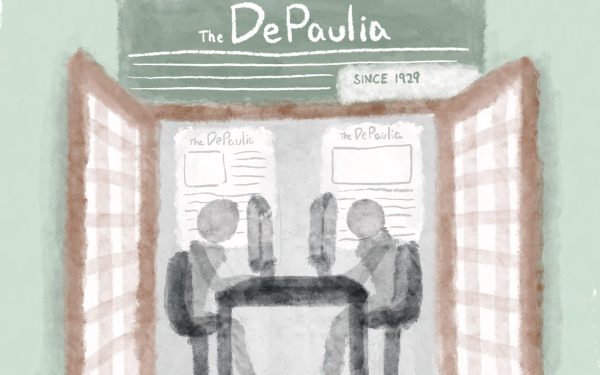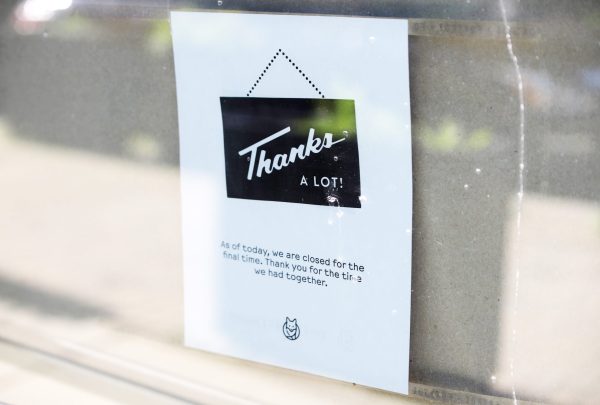There’s always someone peeking in, the elusiveness of Facebook
Theories and presumptions regarding the personal data of users being harvested by social media and advertising companies were confirmed this week, as the congressional hearings of Facebook founder and CEO Mark Zuckerberg unfolded. Many theories were confirmed, like the fact that 87 million users had their information collected by Cambridge Analytica, a political strategy and data firm that has connections with the 2016 Trump presidential campaign. Users speculated that their information was collected to sway the election in the President’s favor, and this past week’s events almost certainly confirm this.
Over the two days of questioning, Zuckerberg, while remaining mostly collected, still failed to satiate his critics. His flat, elusive responses caused him to fall victim to the social media meme machine, with his frequently-repeated line, “My team will follow up with you on this” being the butt of many an internet joke. While it was probably a smart public relations move for him to stay away from potentially misinterpreted information, it nonetheless left much to be desired, particularly when asked questions like, “Cambridge Analytica worked with the Trump campaign to refine tactics. And were Facebook employees involved in that?” by Sen. Maria Cantwell of Washington.
Facebook users deeply desired an answer to this question, but Zuckerberg simply stonewalled by repeating his same lackluster phrase. By leaving this information out, Zuckerberg and his team likely will have more time to craft their defense further, so they can spin a positive image of the company for their stockholders and the general public.
“It makes me wonder how many employees (from Facebook) have switched sides and helped Cambridge Analytica with this,” said Sophie Pecilunas, communications student. “To me, it seems impossible that no employees would have been swayed by the other side when there has to be so many employees that have access to the security side of things.”
In a damning New York Times article published last month, it was revealed that one of the founders and another former employee left Cambridge Analytica in 2014 to start a competing firm because they felt disempowered working for what they saw as a right-wing propaganda machine. This ex-employee was the main source of information in the investigation, and his willingness to travel to the other side and expose a company he had his roots raises the possibility that some Facebook employees could be working as double agents as well.
While it’s still technically unclear if Facebook supported the communication trail between Russia and Cambridge Analytica, the company knows its users, and its users will believe the news that is presented to them. Zuckerberg knows that it’s in his and his team’s best interest to leave those 24 questions unanswered, and he knows that users don’t have the time (or the attention span) to wait for months, or even weeks for these answers. This is the sad truth, that by the time the questions are answered – if ever – many users will have forgotten this scandal. During that time, there is a high possibility users will still have their personal data harvested by other companies similar to Cambridge Analytica.
Truthfully, the senators’ questions didn’t exactly allow for condemnatory trials. Congressman Billy Long of Missouri asked Zuckerberg about Facemash, the supposed predecessor to Facebook in which two photos of women were shown and the user had to choose which was “hotter,” – something that is completely unrelated to the issue of Facebook’s privacy violations. This question was likely used to push Zuckerberg further down the hole he has found himself in since the release of David Fincher’s 2010 film “The Social Network,” where Zuckerberg was portrayed as a privileged, annoying, back-stabbing, smart aleck-y genius. Though he has attempted to eradicate the public’s negative views of him – many of which originate from the film – every effort he has made to prove Fincher’s vision false has only shown that the film was much more than a mere dramatization.
At the hearings, Zuckerberg and his team were prepared to dodge questions as if that’s what the hearings were there for all along. Zuckerberg and the people he hired to help him prep for the media must feel like some of the smartest people on the planet right now. They clearly understand the 24-hour news cycle and how fast stories filter in and out. Already since the trials occurred early last week, U.S., Britain and France have announced missile strikes on Syria to combat President Bashar al-Assad’s use of chemical weapons – igniting violence and further affecting our Middle Eastern relations. James Comey has been hailed as a hero by the media for his allegedly defamatory upcoming book, and the Yodel Walmart Kid has played at Coachella. The news has swiftly moved on from Facebook’s elusiveness.
No matter how things turn out for Zuckerberg, people won’t stop using Facebook. Zuckerberg’s social media platform succeeded many years ago, and now it’s simply too ingrained into the way we communicate for most of us to ever truly #DeleteFacebook. Still, we must not forget all the secrecy, lies and sketchy practices that Zuckerberg has overseen as chairman and CEO of the social media giant. Facebook keeps private information, listens to us even when the app isn’t open and is potentially to blame for Trump’s presidency. Letting Facebook get away with this lack of concern for our privacy will continue to affect us as we sink ever deeper into an a hyper-connected world, where the keys to our personal information are increasingly out of our grasp.












